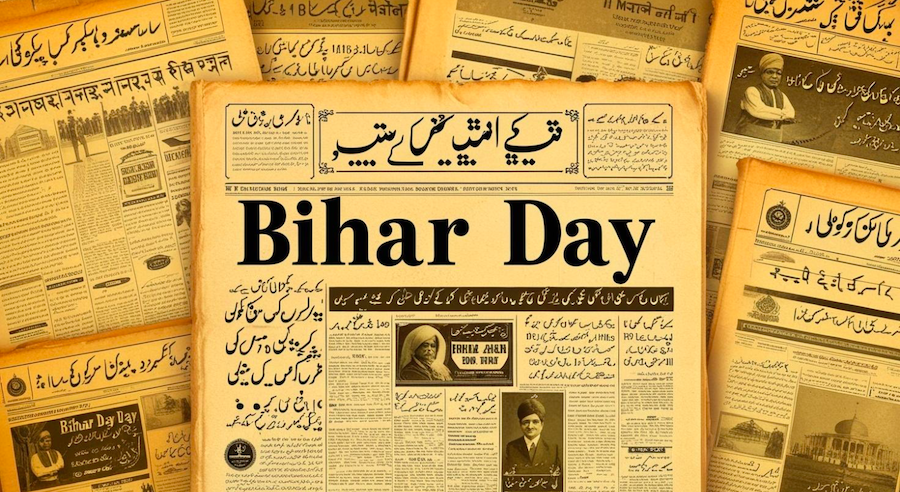Adil Hossain for BeyondHeadlines
“We of the East break our opponent’ heads
They of the West change their opponents’ nature
The guns have gone, and now come the professors”
– Akbar Allahabadi (1846-1921), Indian Urdu Poet
The ‘our culture’ versus ‘their culture’ talk is omnipresent in the modern world because it gives oversimplified understanding of many complex issues we face today. It assumed further significance recently in Indian subcontinent because of its repeated use in two instances: as response to the massive anti-rape protests in India and as reaction to the Shahbag movement in Bangladesh demanding strict punishment for war crimes. RSS chief’s view that rapes happen only in India and not in Bharat, or the inclusion of “ban all foreign cultures” in the 13 point demand of Hefazat-e-Islam( the radical Islamist group formed as response to Shahbag movement) points to the confusion propagated through the same ‘our culture’ versus ‘their culture’ talk.
Observing the people who normally invoke the idea of “foreign cultures”, we easily get the implied meaning that it’s associated with the role of women and religion in society. This conflict is inextricably linked with the human rights debate going around the world. It is also related to the idea of political democracy which is central to the human rights issue. These persons’ strong negation of the idea of separation of church and state comes from the thought that it is western concept which has no relevance in ‘our society’. And this again put us back to the ‘universalism of the west’ versus ‘particularism of the east’ debate which centre around the idea that West’s view on individual liberty and political democracy have little resonance with the particularistic societies present in Eastern countries.
Western scholars since long have taken the stand that the western ideas on every aspects of life are universal in nature. Trinidadian Nobel Laureate V.S. Naipaul claimed in a 1990 article in New York Times that the inherent characteristics of Western civilisation makes it “universal civilisation” that “fits all men”. Harvard professor Huntington went on to claim that the very idea of “universal civilisation” is Western, which is “at odds with the particularism of most Asian societies and their emphasis on what distinguishes one people from another”. His famous “clash of civilisation” rested on this theory that after the cold war the World will be divided in two blocks and future battles will be fought on this line only. The universality of western ideas was also emphasized in the foreign policy documents of George Bush where it says, “The great struggles of the twentieth century between liberty and totalitarianism ended with a decisive victory for the forces of freedom—and a single sustainable model for national success: freedom, democracy, and free enterprise…These values of freedom are right and true for every person, in every society”.
Such ethnocentrism and our-culture-is-superior-than- yours rhetoric helps little to solve the problems on human rights and attract more reactionary responses from the Asian and Islamic nations. Therefore both Western media and scholars should avoid such posture and take an inclusive approach to this issue. Rather than debating on the ‘universalism of the west’, there is a need to focus more on the universality of certain basic human rights which are bone of contention in non-Western societies. It is also pertinent to mention the general view here that civil and political rights was championed by First World( in American and French revolution), social and economic rights by erstwhile Communist states and cultural and religious rights by Asian and Arab league states.
On the other side, we should persistently question the people who rely their arguments on opposing “foreign cultures” that, whether it legitimises the violation of rights that they wish to carry out on their fellow humans. Amartya Sen in his book Argumentative Indian rightly set the context when he says that such view distracts our attention from one central question- “what would make sense in contemporary Asia?”
We should also keep in mind that the strong opposition of Eastern countries to issues espoused by the West has to be linked with the colonial history and centuries of subjugation. This subjugation was not only economic and political one in nature but also it quelled their intellectual and moral development. The Bangkok declaration by Asian countries in 1993 or the joint criticism of the human rights accord by the Islamic and Asian nations in Vienna in the same year is a way of creating a discourse around their identities at world stage.
So in the post colonial era these nations are coming out of its tragic past and they also look for spaces to gain recognition. The Bangkok declaration by Asian countries in 1993 or the joint criticism of the human rights accord by the Islamic and Asian nations in Vienna in the same year are the ways of creating a discourse around their identities at world stage. The historic context of such confrontation is clear from the words of Tagore, who wrote
“The harder turns our conflict with the foreigners, the greater grows our eagerness to understand and attain ourselves…Asia today is set to realising herself consciously, and thence with vigour. She has understood, know thyself- that is the road to freedom. In imitating others is destruction”
But it would be entirely self-defeating if we in the process of understanding and attaining ourselves deny people the justified avenues through which they can realise their capability as human. It is the need of the hour that we struggle for the universality of certain rights which stands true for every human irrespective of sex, race, religion, nationality and all. However we must be cautious in our approach in basing those universal rights. If the ‘universal’ contains contributions only from a specific period of Western history, non-Western history is made insignificant in the process of creating the ‘universal’. An exclusionary universal has but limited appeal.
(Adil Hossain is a student of development anthropology at Goldsmiths, University of London and intern at Media Standard Trust, London. He can be followed on twitter@adilhossain)










